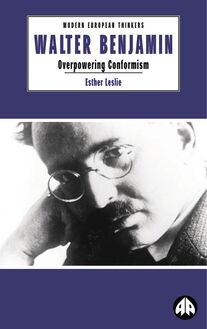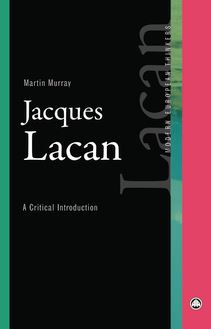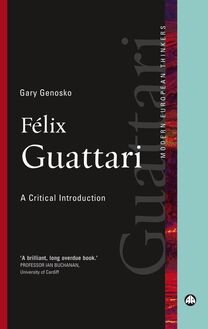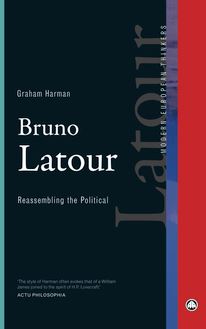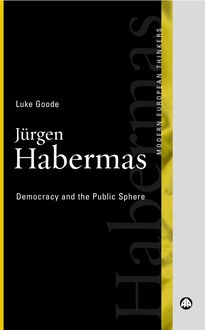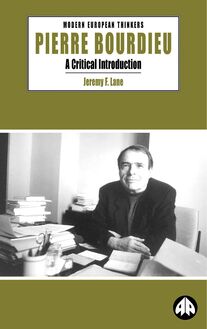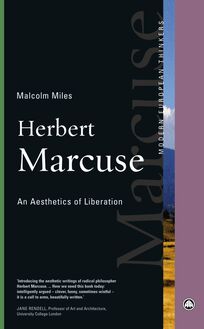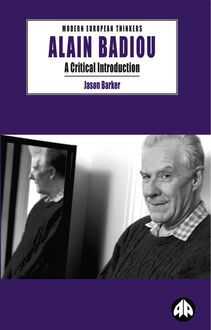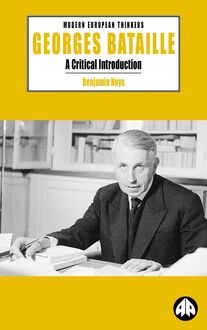Alain Badiou , livre ebook
112
pages
English
Ebooks
2001
Vous pourrez modifier la taille du texte de cet ouvrage
Obtenez un accès à la bibliothèque pour le consulter en ligne En savoir plus
Découvre YouScribe en t'inscrivant gratuitement
Découvre YouScribe en t'inscrivant gratuitement
112
pages
English
Ebooks
2001
Vous pourrez modifier la taille du texte de cet ouvrage
Obtenez un accès à la bibliothèque pour le consulter en ligne En savoir plus
Publié par
Date de parution
20 décembre 2001
Nombre de lectures
2
EAN13
9781783713219
Langue
English
Setting the traditional platonic concerns of philosophy, truth and being, against the modern sophists of postmodernism, Badiou has articulated a powerful systematic philosophy with profound ethical and political consequences.
Abbreviations
Introduction
1. Maoist Beginnings
2. The Science of Being
3. The Event of Non-Being
4. The Politics of Truth
5. The Cult of Deleuze
6. The Ethics of Philosophy
Appendix
Notes and References
Bibliography
Index
Publié par
Date de parution
20 décembre 2001
Nombre de lectures
2
EAN13
9781783713219
Langue
English
Alain Badiou
Modern European Thinkers
Series Editor: Professor Keith Reader, University of Newcastle upon Tyne
The Modern European Thinkers series offers low-priced introductions for students and other readers to the ideas and work of key cultural and political thinkers of the post-war era.
Jean Baudrillard Mike Gane
Edgar Morin Myron Kofman
Pierre Bourdieu Jeremy F. Lane
Walter Benjamin Esther Leslie
André Gorz Conrad Lodziak and Jeremy Tatman
Gilles Deleuze John Marks
Guy Hocquenghem Bill Marshall
Georges Bataille Benjamin Noys
Régis Debray Keith Reader
Julia Kristeva Anne-Marie Smith
Alain Badiou
A Critical Introduction
Jason Barker
First published 2002 by Pluto Press 345 Archway Road, London N6 5AA
www.plutobooks.com
Copyright © Jason Barker 2002
The right of Jason Barker to be identified as the author of this work has been asserted by him in accordance with the Copyright, Designs and Patents Act 1988.
British Library Cataloguing in Publication Data A catalogue record for this book is available from the British Library
eISBN: 978 0 7453 1800 4
Library of Congress Cataloging-in-Publication Data
Barker, Jason.
Alain Badiou : a critical introduction / Jason Barker.
p. cm. — (Modern European thinkers)
Includes bibliographical references and index.
ISBN 978-0-7453-1801-1 (hard) — ISBN 978-0-7453-1800-4 (pbk.)
1. Badiou, Alain. 2. Political scientists—Biography. 3. Political
science—Philosophy. 4. Philosophy, French—20th century. I. Title.
II. Series.
JC229.B33 B37 2002
320’.092—dc21
2001003499
11 10 09 08 07 06 05 04 03 02 9 8 7 6 5 4 3 2 1
Designed and produced for Pluto Press by Chase Publishing Services, Fortescue, Sidmouth EX10 9QG
Printed and bound in Great Britain by Marston Book Services Limited, Didcot
Contents
Acknowledegments
Abbreviations
Introduction
1. Maoist Beginnings
2. The Science of Being
3. The Event of Non-Being
4. The Politics of Truth
5. The Cult of Deleuze
6. The Ethics of Philosophy
Appendix – Some Basic Principles of Set Theory
Notes and References
Bibliography
Index
Acknowledgements
I would like to thank Christopher Norris for his expert comments and guidance throughout the researching and writing of this book, particularly the many discussions which were a regular source of inspiration. My sincerest thanks are also due to Martin Jenkins for his support and belief in this project right from the very beginning. Special thanks to Jean-Jacques Lecercle for kindly agreeing to read one of several draft versions of the manuscript, and to Peter Hallward for sending me extracts of his own work in progress. I am grateful to Andy Goffey and the equally talented Benoit Létourneau for – quite unbeknown to them I’m sure – setting my thoughts on the right track. I should also like to thank Alain Badiou for his generous invitation to participate in the colloquium on his work, held at Bordeaux in October 1999, and for providing me with the appropriate biographical details. I must express my appreciation to the staff and acknowledge the excellent facilities at Cardiff University, and thank Gary Winterbottom for his first-rate hospitality on my numerous visits to Cardiff. Thanks to the staff at Pluto Press, particularly Melanie Patrick, Robert Webb and Anne Beech, and to Veronique Serafinowicz for her editorial comments. Needless to say any lingering inconsistencies in my use of Badiou’s terminology are solely down to me.
Abbreviations
I refer the reader to my bibliography for full details of the following works. All references relate solely to the French editions with one exception. * In this case corresponding page numbers of the English edition are provided in italics.
CM The Concept of Model TC Theory of Contradiction I Of Ideology NR The Rational Kernel of the Hegelian Dialectic TS Theory of the Subject PP Can Politics Be Thought? EE Being and the Event MP Manifesto for Philosophy C Conditions E Ethics D * Deleuze. The Clamour of Being AM Summary of Metapolitics CT Short Treatise on Transitional Ontology PMI Light Inaesthetic Manual DO An Obscure Disaster
Introduction: The Unnameable
It is 5 a.m. Paris awakens to barricades, trees strewn in the streets. The protest is, according to General de Gaulle, difficult to grasp. Unforeseeable, it profoundly shakes the government. A radical protest is sweeping France and provoking the most important social movement the country has ever known: ten million strikers. A shock. 1
The philosophy of Alain Badiou is an impossible wager. Arguably the most ambitious speculative thinker since Hegel and the most materialist since Lucretius, Badiou defies the liberal diplomacy of the linguistic turn and the crisis of Western metaphysics in a heroic effort to rescue philosophy from its time in exile. His intervention in philosophy today forces us to interrogate most if not all of our postmodern beliefs: from the death of Marxism and the deconstruction of the subject to the revival of neo-Kantianism and scientific pragmatism, Badiou pierces the common sense of each and every one in order to reveal, against a backdrop of conventional wisdom, philosophy as a militant discourse on truth.
But who is Badiou? And what are we to make of a ‘militant’ philosopher so conspicuously deprived of latter-day philosophical allies?
Born in Rabat, Morocco in 1937, Badiou studied at the École Normale Supérieure in Paris between 1956 and 1961, obtaining his licence and maîtrise from the Sorbonne. In 1958 he helped to found the PSU (United Socialist Party), an offshoot of the French Socialist Party strongly opposed to the French Algerian War. Like many young political activists of his generation, Badiou’s anti-imperialist consciousness would prove paramount in dictating the future path of his intellectual life. He wrote the first of several novels – Almagestes (1964) – and in 1967 began participating in a Spinoza research group created by the Marxist philosopher Louis Althusser. The same year he was invited to join Althusser’s ‘Philosophy Course for Scientists’ 2 and in 1968, invigorated by the events of May, he began investing his political energies in the setting up of a breakaway Maoist organisation, the UCFML (Group for the Foundation of the Union of Marxist-Leninist Communists of France). 3
It was a major turning point. By now a professor at the University of Vincennes, a modernist enclave and bastion of the Far Left, Badiou joined the struggle for political hegemony of the philosophy department, eventually provoking Gilles Deleuze to denounce his ‘Bolshevism’ (D, 8; 2). An acolyte of Jacques Lacan, whose unbridled reign over the department of psychoanalysis would prompt a petition from Deleuze and Lyotard against ‘Stalinisation’, 4 Badiou continued to distance himself from all forms of ‘progressive’ thinking. Responding to Althusser’s Essays in Self-Criticism he ridiculed the ‘arrogance’ of his former master in abandoning the masses under the pretence of ‘autocritique’, and exposed the errors of Althusser’s ‘imaginary’ theory of the subject (I, 22). He branded Deleuze an ‘ideologist’ and, at the height of the French renaissance in metaphysics, wrote an uncompromising series of political essays on Maoism – Theory of Contradiction (1975), Of Ideology (1976) and The Rational Kernel of the Hegelian Dialectic (1978). The 1970s also witnessed the rise of another political adversary in the form of the nouveaux philosophes , or ‘new philosophers’, whose self-aggrandising antics would at least serve to underscore the integrity of Badiou’s militant exercise. Comprising ex-Maoists like André Glucksmann and Bernard-Henri Lévy, this loose band of philosophical entrepreneurs had no philosophy to speak of, and their only political agenda involved securing a media platform for launching opportunist assaults on the Left. 5 Drowned out by the deluge of the nouvelle philosophie , Badiou appeared to be politically out of step as Maoism, in France and China, stood on the brink of ideological collapse. However, as Badiou would come to accept some years later, politics always lags behind events.
In Theory of the Subject (1982) Badiou took his lead from Lacan (‘our Hegel’) in undertaking a detailed analysis of the universal logic of the subject and its endurance of its own historical destruction. Badiou’s reliance on Lacanian psychoanalysis was strongly at odds with the Deleuzo-Guattarian construction of a political unconscious. Unlike the anti-psychiatrist Félix Guattari, Badiou never underwent analysis with Lacan, and so crucially had no axe to grind with the institutional arrangements of Lacan’s École Freudienne. For Badiou, power was not – and has never been – the issue, and his interest in Lacan would only ever amount to confirming the status of the latter, along with Mallarmé, as one of ‘The two great modern French dialecticians’ (TS, 12). Badiou’s outright refusal to enter into more open dialogue with Spinozism and the landmark studies of Macherey, Deleuze and Matheron, 6 coupled with his uncritical acceptance of the orthodox Hegelian interpretation of ‘Substance’, remained a dialectical sticking point. Also at odds with Derridian deconstruction, for Badiou the subject would remain the means of ‘propping up’ historical contradictions (TS, 40–3).
Badiou shifted his approach, if not his position, in Can Politics Be Thought? (1985), adding his voice to the discourse on the death of Marxism while continuing to maintain the symptomatic significance of the resulting crisis for politics. The crisis of Marxism still demanded a subject to think it – a subject of the crisis – even if Marxism was no longer sufficiently qualified as a doctrine, or credible as a grand narrative, to do so. Moreover, the fact that the Marxist vocabulary, with its sacred talk of States and revolutions, was now completely sterile made no difference to the ‘heterogeneous pol
